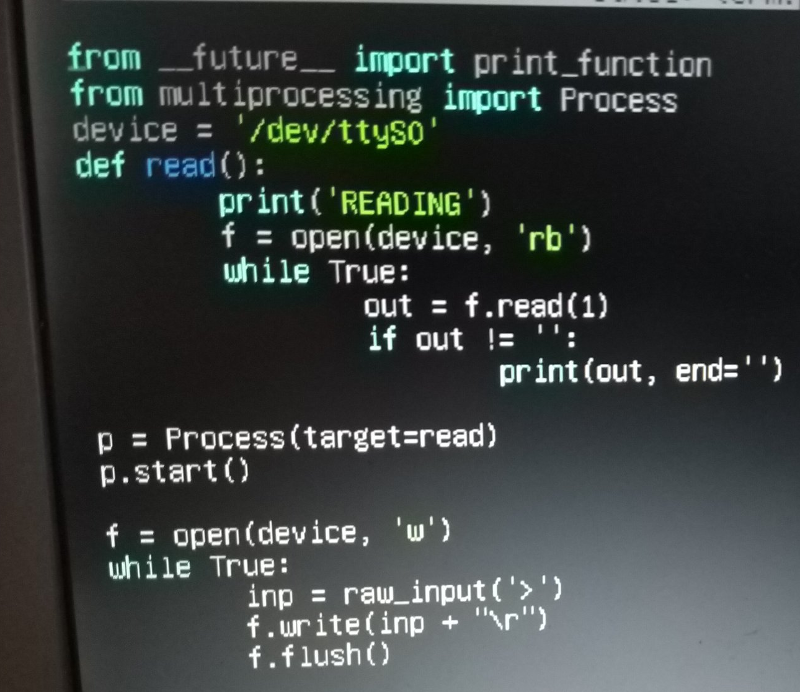
- Pyserial windows examples of opening usb ports serial#
- Pyserial windows examples of opening usb ports software#
- Pyserial windows examples of opening usb ports mac#
Rs485.RS485Settings class provides additional settings When data is sent and inactive otherwise (for reception). Rs485.RS485Settings and supported by OS, RTS will be active rs485_mode ¶ Getter:ĭisable ( None) or enable the RS485 settingsĪttribute to configure RS485 support. Read or write current hardware flow control setting. Get current hardware flow control setting
Pyserial windows examples of opening usb ports software#
Read or write current software flow control rate setting. Get current software flow control setting Read or write current write timeout setting.Ĭhanged in version 3.0: renamed from interCharTimeout xonxoff ¶ Getter: Read or write current read timeout setting. Read or write current stop bit width setting. Read or write current data byte size setting. When the port is already open, it will be closedĪnd reopened with the new setting. Port will be reconfigured, even if it’s opened at that time: port ¶ Type: New values can be assigned to the following attributes (properties), the
Pyserial windows examples of opening usb ports serial#
Get the state of the serial port, whether it’s open. Return the state of the CD line is_open ¶ Getter: Value before opening the serial port, then the value is applied upon When active, no transmitting is possible. When set to True activate BREAK condition, else disable.Ĭontrols TXD. It to None has the effect that its state follows rtscts.Īlso consider using the function serial_for_url() instead ofĬhanged in version 3.0: renamed from flushOutput() send_break ( duration=0.25 ) ¶ Parameters:ĭuration ( float) – Time in seconds, to activate the BREAK condition.

It is common to use one of the methodsĭsrdtr is not supported by all platforms (silently ignored). Note that enabling both flow control methods ( xonxoff and rtscts) Write() is blocking by default, unless write_timeout is set.įor possible values refer to the list for timeout above.

Otherwise wait until the timeout expires and return all bytes that Returns immediately when the requested number of bytes are available,
Pyserial windows examples of opening usb ports mac#
Non-standard values are also supported on some platforms (GNU/Linux, MAC These are well supported on all platforms. dev/ttyUSB0 on GNU/Linux or COM3 on Windows. Port is a device name: depending on operating system. It is not opened when port is None and a successive call The port is immediately opened on object creation, when a port is




 0 kommentar(er)
0 kommentar(er)
